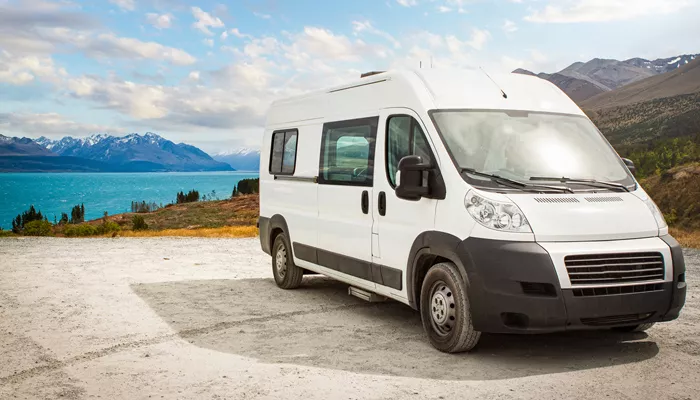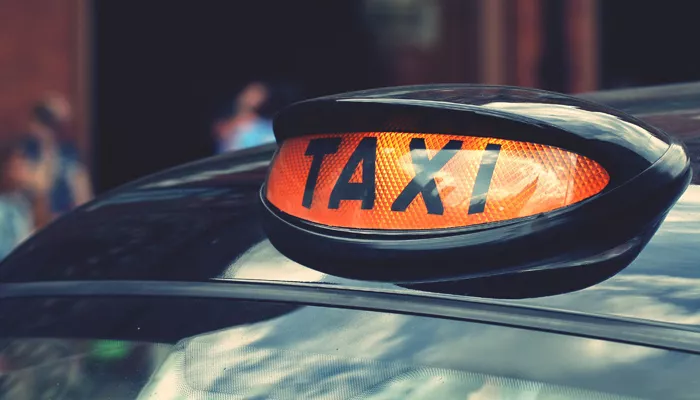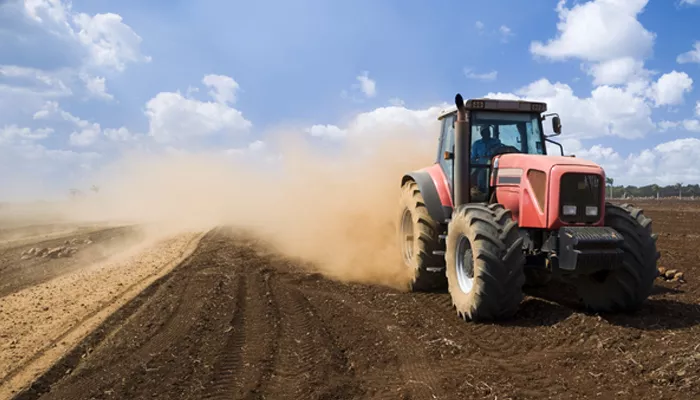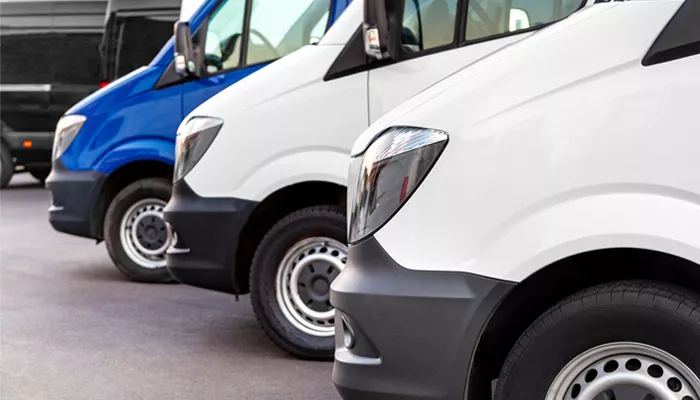Reduce the Risk: Occupational Road Safety for Your Vehicles
Placing occupational road safety at the heart of the business is crucial for vehicle firms. Learn how to create the right occupational road safety culture to ensure your fleet stays on the road, and reduce your transport insurance costs.
Keeping your commercial drivers and vehicle fleet safe
To keep your drivers and vehicle fleet safe, it is crucial to create the right management culture, with a clear policy for the management of work-related road safety that is communicated to all staff. This should include:
- Vehicle maintenance and daily checks
- Safety in, on, and around a vehicle
- Ensuring that drivers are sufficiently fit
- Dealing with risks posed by alcohol and drugs
- Distraction risks caused by eating and mobile phones
- Ensuring driver competence
- Journey planning
- Dealing with adverse weather conditions
- Monitoring driving style and behaviour
- Accident reporting and post-accident review
Assess risks to your vehicles and drivers
When carrying out risk assessments, thought needs to be given to how people might be harmed when using vehicles in connection with the business, what precautions have been taken to manage the risks identified, and what further measures may need to be taken. Road transport businesses need to particularly think about issues such as how people might be harmed:
- When at depot and delivery sites
- While parking and manoeuvring vehicles
- When coupling and uncoupling trailers When loading and unloading vehicles
- As a result of insecure loads
- When cleaning vehicles
- Due to the height and / or relative instability of their vehicles (risks include overturning, tipper bodies coming into contact with high-voltage cables, and trucks hitting low bridges)
- When drivers are tired or stressed
As transport operators, ask what might go wrong when a driver is behind the wheel of a vehicle and why. Then draw up and implement an action plan that prioritises and addresses the issues.
Mitigate risks through vehicle safety method statements
A written method statement that sets out how a particular task needs to be planned, resourced and carried out in order to address risks is particularly useful when higher-risk, complex, or relatively unusual tasks need to be undertaken.
From a road transport perspective, movement of abnormal loads, delivery and installation of park homes, and delivery of, lifting or installation of plant or machinery all may merit method statements.
Similarly, while communication with mobile workers is vital, the distraction caused by smartphones creates significant risks for road users. As it is illegal to cause or permit a driver to use a handheld mobile phone while driving, haulage and vehicle companies could be held responsible in the event of a serious collision while a phone is being used.
To mitigate this, draw up and communicate proper procedures relating to contacting drivers out on the road, which ensure the risk of distraction is minimised.
Driver training in occupational road safety
Driver training programmes involving time behind the wheel alongside a qualified instructor can play an important role in raising awareness of occupational road risk and highlighting the dangers associated with certain driving styles and behaviours.
To ensure that driver training brings about a lasting change in driving style and behaviour, positive behaviours need to be praised and rewarded on a regular basis. As well as rewarding safe and fuel efficient driving, such programmes require desirable outcomes to be clearly defined – outcomes such as achieving a defined period of crash-free driving or achieving average monthly fuel economy targets.
To help with the rewarding of positive behaviours, consideration may be given to sensitively deploying appropriate vehicle telematics solutions capable of monitoring driving style and behaviour, providing league tables that enable drivers to compare their driving skills with their peers, and enabling appropriate management intervention when undesirable driving traits are identified.
Smart and usage-based vehicle insurance
There has been much talk about whether the future of vehicle insurance lies with ‘how you drive’ telematics-based systems that monitor driving style and behaviour, and can be used to more accurately underwrite businesses wishing to insure their cars, vans and trucks.
When telematics systems are used as a tool to help change attitudes by focusing on positive behaviour, further enhance the awareness and knowledge of drivers through smartphone apps, and manage safe and fuel efficient driver incentive programmes, they can help significantly improve driving style and behaviour.
Factors that may encourage business customers representing no more than an ordinary risk to accept a move towards smart and usage-based vehicle insurance include:
- A reduction or elimination in the cost of traditional after-market ‘black box’ telematics devices thanks to plug-in on board diagnostic (OBD) devices, smartphone apps and factory-installed original equipment manufacturer (OEM) devices
- Bundled propositions offering not just standard vehicle insurance but a rewards programme for good driving behaviour, breakdown services and a streamlined accident recovery / claims-reporting process
While initially of greater attraction to single vehicle owners and those managing minifleets, Smart and usage-based vehicle insurance may in due course become the mainstream way of underwriting larger fleets as well.
In short, creating an occupational road safety culture brings both safety and financial benefits to your business. By following these methods, you will both improve safety for your drivers and fleet, and cut costs through more efficient driving and reduced vehicle insurance premiums.
HGV insurance from Towergate
We can offer tailored truck insurance with a series of options for drivers of single trucks or hauliers with fleets of up to five HGVs. Our cover ensures you have the right cover in place within a single policy, with no truck too big or too small. We can cover any truck ranging in size from 3.5t vehicles right through to trucks used to move abnormal loads.
Call for a quote on 0344 346 1418 or request a quote online. Alternatively, read more about our truck insurance and what we cover.
For larger vehicle fleets, we also offer fleet insurance.
All cover is subject to normal underwriting terms and conditions.
About the author
 Chris North FCII is a respected industry leader with over 40 years' experience, who has worked in the insurance industry in a variety of roles, accumulating a wealth of knowledge. He is currently Technical Manager for Towergate's motor division, providing expertise on all matters relating to motor fleet insurance, in particular haulage and self-drive hire fleets.
Chris North FCII is a respected industry leader with over 40 years' experience, who has worked in the insurance industry in a variety of roles, accumulating a wealth of knowledge. He is currently Technical Manager for Towergate's motor division, providing expertise on all matters relating to motor fleet insurance, in particular haulage and self-drive hire fleets.
This is a marketing article by Towergate Insurance.
Date: July 05, 2024
Category: Commercial Vehicle
















